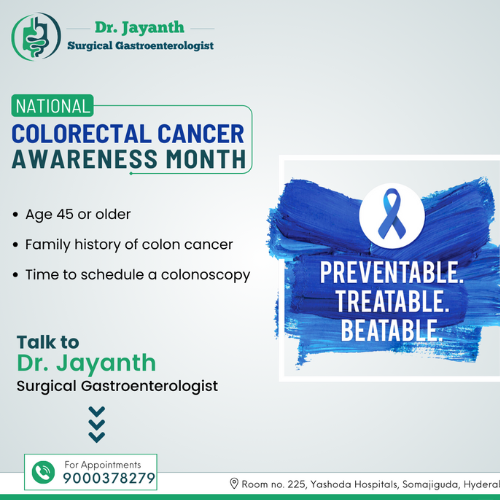Working Time
| Mon,Tue,Wed,Fri,Sat | 09:00am to 04:00pm |
| Thursday&Sunday | Holiday |
| Other Time | On Appointment |
Book Appointment
Introduction:
Intestinal obstruction is a medical condition that occurs when the normal flow of contents through the intestines is blocked. This obstruction can impede the passage of fluids and digested food, leading to a range of symptoms and potential complications. In this comprehensive guide, we will delve into the causes, symptoms, diagnosis, and treatment options for intestinal obstruction, shedding light on this critical aspect of gastrointestinal health.
Understanding Intestinal Obstruction:
Causes of Intestinal Obstruction:
Intestinal obstruction can result from various factors, broadly categorized as mechanical or functional. Mechanical obstructions occur when there is a physical blockage preventing the passage of intestinal contents. This can be due to adhesions, hernias, tumors, or impacted feces. Functional obstructions, on the other hand, arise from impaired muscle movement within the intestines, often associated with conditions like paralytic ileus or pseudo-obstruction.
Common Symptoms:
Recognizing the symptoms of intestinal obstruction is crucial for early intervention. Common signs include abdominal pain, bloating, vomiting, constipation, and the inability to pass gas. As the condition progresses, individuals may experience dehydration, abdominal swelling, and a noticeable absence of bowel movements.
Diagnosis:
Timely and accurate diagnosis is vital in managing intestinal obstruction. Physicians employ a combination of clinical evaluation and diagnostic tests to confirm the presence and determine the cause of the obstruction. Imaging studies such as X-rays, CT scans, and ultrasound are often utilized to visualize the intestines and identify any blockages.
Types of Intestinal Obstruction:
Small Bowel Obstruction:
Small bowel obstruction occurs when there is a blockage in the small intestine. This can be caused by adhesions, hernias, or tumors. The symptoms include crampy abdominal pain, vomiting, and a lack of bowel movements.
Large Bowel Obstruction:
Large bowel obstruction involves a blockage in the colon or large intestine. Causes may include colorectal cancer, diverticulitis, or volvulus. Individuals with large bowel obstruction may experience abdominal distension, constipation, and a sense of incomplete evacuation.
Treatment Options:
Conservative Management:
In cases of partial obstruction or when surgery is not immediately necessary, conservative management may be employed. This often includes bowel rest, intravenous fluids, and closely monitoring the patient's condition. The aim is to relieve the obstruction and allow the intestines to recover.
Surgical Intervention:
Surgical intervention is often required for complete or complicated intestinal obstructions. Surgeons may remove the obstruction, repair damaged tissues, or address the underlying cause, such as removing a tumor. Advances in minimally invasive surgery, including laparoscopy, have improved recovery times for many patients.
Postoperative Care:
Following surgery, patients typically undergo a period of observation and recovery. It's essential to monitor for signs of complications, such as infection or impaired wound healing. Resuming oral intake and gradually reintroducing food is part of the postoperative care plan.
Prevention and Lifestyle Considerations:
Hydration and Diet:
Staying adequately hydrated is essential for maintaining healthy bowel function. A high-fiber diet can promote regular bowel movements and reduce the risk of obstructions. Adequate fluid intake is particularly crucial for those with a history of gastrointestinal issues.
Regular Exercise:
Engaging in regular physical activity promotes overall digestive health. Exercise helps maintain proper muscle tone in the intestines, reducing the risk of functional obstructions.
Addressing Underlying Conditions:
Managing conditions that can contribute to intestinal obstruction, such as inflammatory bowel disease, diverticulitis, or cancer, is key to preventing recurrent episodes. Regular check-ups with a healthcare provider can aid in early detection and intervention.
Conclusion:
In understanding all about intestinal obstruction, we grasp the significance of early recognition, accurate diagnosis, and prompt intervention. Whether through conservative management or surgical intervention, addressing intestinal obstruction is essential for preventing complications and promoting overall gastrointestinal health. By incorporating preventive measures into our lifestyles and staying informed about potential risk factors, we can take proactive steps towards maintaining a healthy digestive system. If you suspect symptoms of intestinal obstruction, consult with a healthcare professional for personalized guidance and timely intervention.
About the Author:
Introducing Dr. Moode Jayanth, a distinguished medical expert and leading gastroenterologist based in Somajiguda. Armed with an MBBS, MS in General Surgery, and DrNB in Surgical Gastroenterology, Dr. Jayanth stands as a Consultant Surgical Gastroenterologist and Robotic Surgeon. His commitment to advancing healthcare is evident through his impressive qualifications, which include FIAGES and FALS in Robotic Surgery, emphasizing his unwavering dedication to promoting comprehensive well-being. Dr. Jayanth's wealth of experience enhances our exploration of the vital connection between good food choices and overall health.

